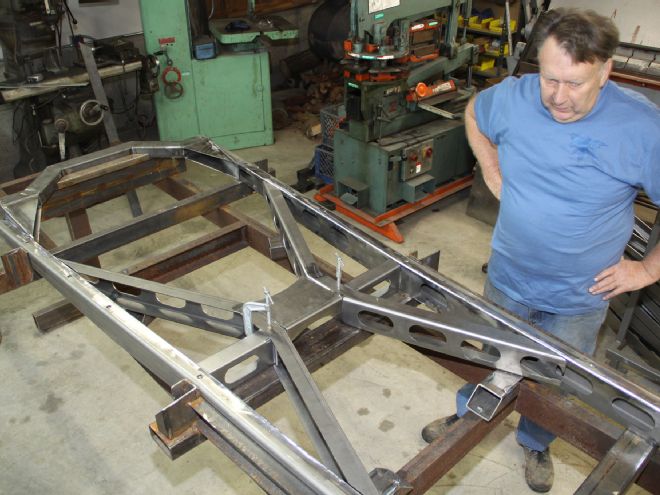
Model A Fords make great street rods, but one of the challenges when updating the suspension and adding more than the original 40 hp is that 1928-31 frames are flimsy, with little in the way of torsional rigidity.
While boxing the A framerails is a common fix, the most effective method to add the needed strength to these frames is with the installation of an X-member, thanks to Dagel's Street Rods.
Dagel's Super X kit includes a pair of pre-formed crossmember legs, a center crossmember with an upper reinforcement, connectors to tie the centersection into the 'rails, and a transmission mount. The Super X can be installed in stock or boxed frames as well as those fabricated from rectangular tubing.
A variety of options are available with the Super X, including master cylinder mounts for manual or power brakes and brake pedal assemblies. Dagel's also offers new reproduction 1928-31 framerails (without all the extra holes to fill) boxing plates with and without oval cutouts, new front and rear crossmembers as well as kits to hang a 1932 gas tank on the back of a Model A.
Adding a Super X is about the easiest frame modification that can be made to a Model A and is arguably the most effective. Follow along to see how easily it's done.
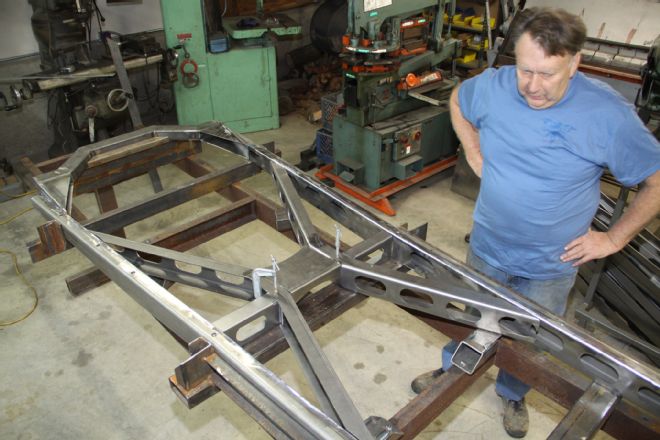
Gary Dagel finishes the installation of a Super X in a customer's chassis. Note the oval cutouts in the crossmember that provide that traditional touch.
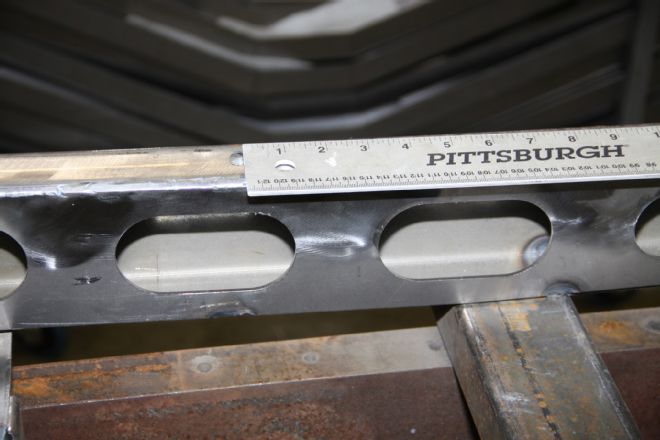
Installation of the Super X begins by locating the centerline of the front axle. Dagel has found the most reliable method is to measure 30-1/2 inches from the center of the front body mounting holes. The framerails should be 27 inches apart, measured center to center from the same holes
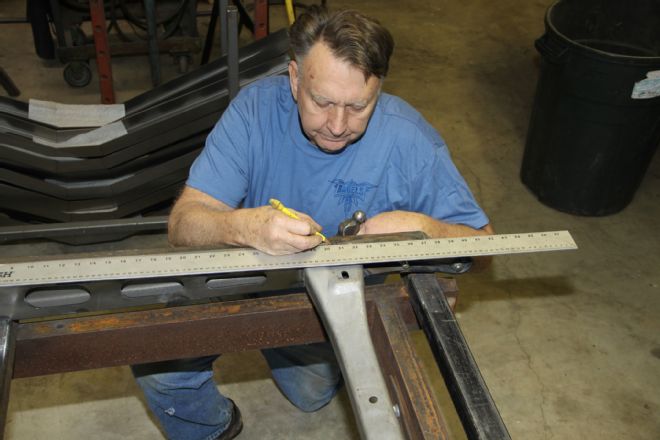
The centerline of the axle will fall slightly behind the oval holes used to mount the radiator. Temporary marks are made with a pencil
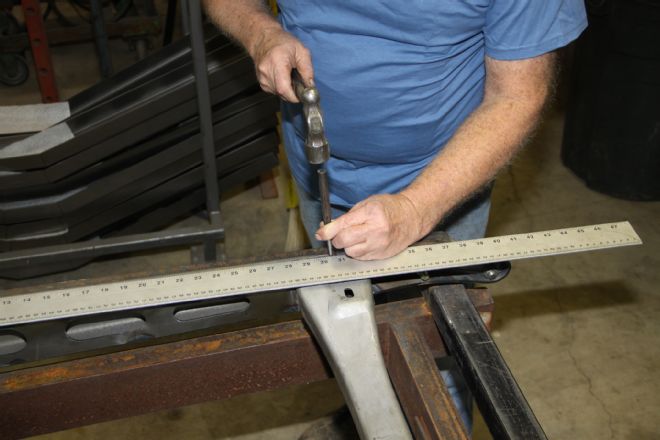
To prevent the pencil lines from being obliterated, a punch is used to make a permanent mark.
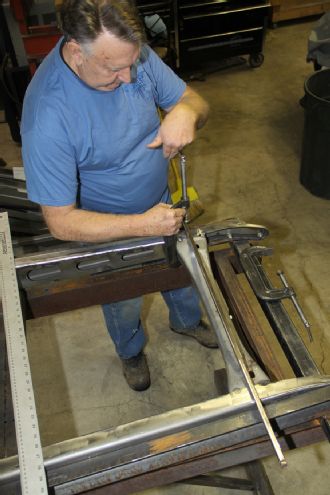
A short length of steel tubing is clamped in place to make measuring easier.
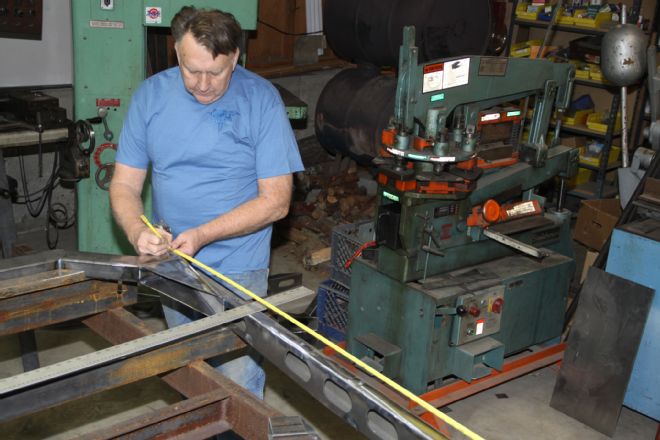
After X measuring the frame from corner to corner to ensure it's square, the axle centerlines are confirmed to be 103-1/2 inches.
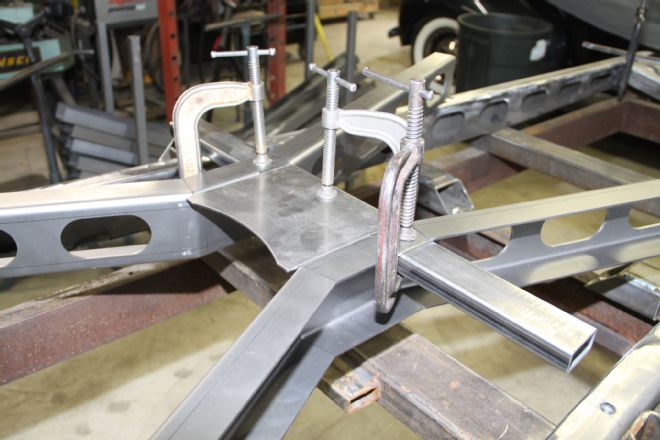
Dagel's Super X practically locates itself. The top plate is centered on the crossmember tube, then the X-member legs are slid against the plate and clamped in place.
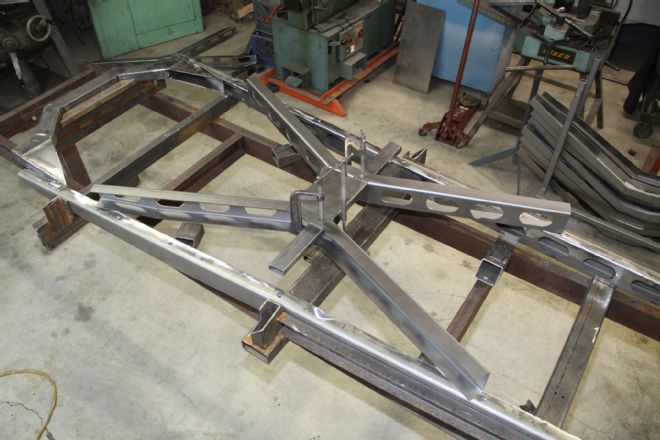
With all the components clamped together the entire assembly is placed on top of the framerails. The cross tube and X-member legs are long so they can be cut to accommodate variations in frames.
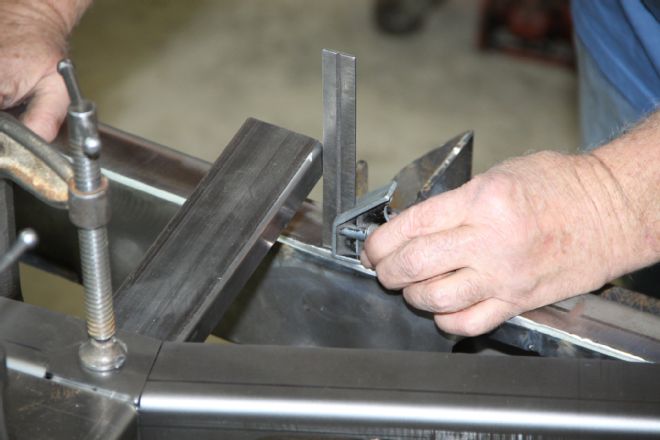
The front of the center tube positioned correctly at 55-1/2 inches from the front axle centerline.
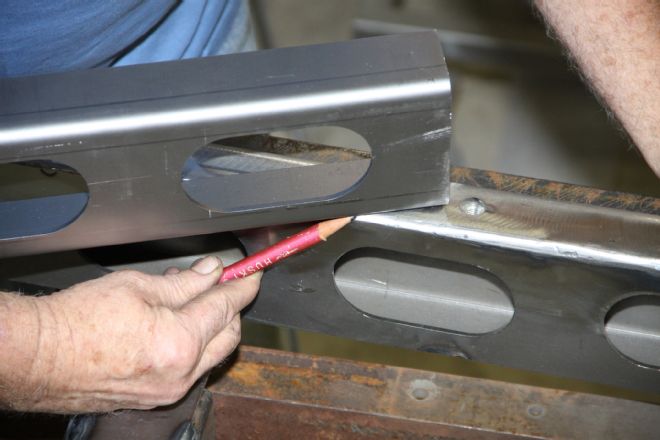
With the center tube in the proper location it and the X-member legs are marked for cutting.
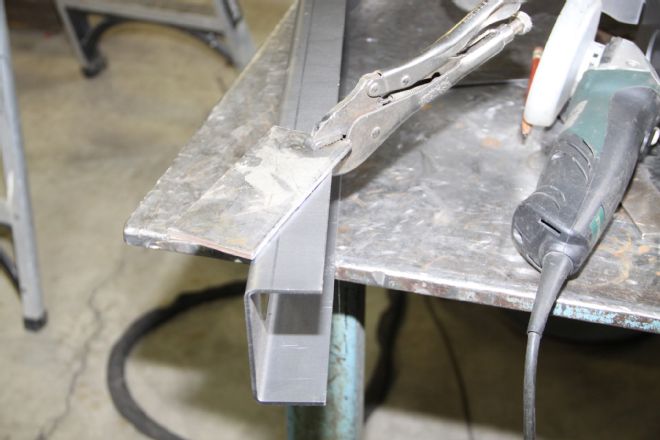
To ensure a straight cut, a piece of scrap material is clamped in place to act as a guide.
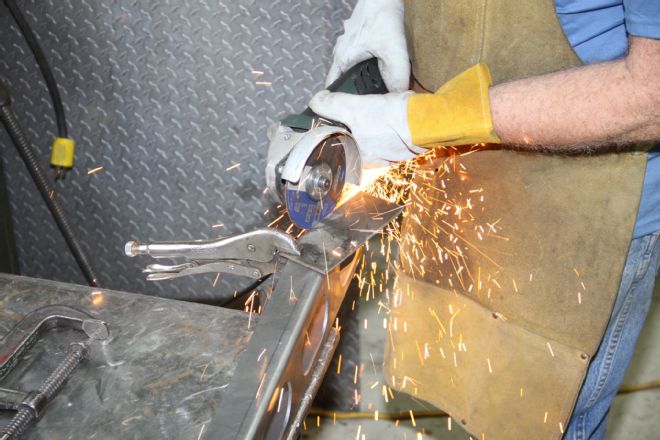
A cutoff wheel in an electric grinder is used to remove the excess material from the X-member legs and cross tube.
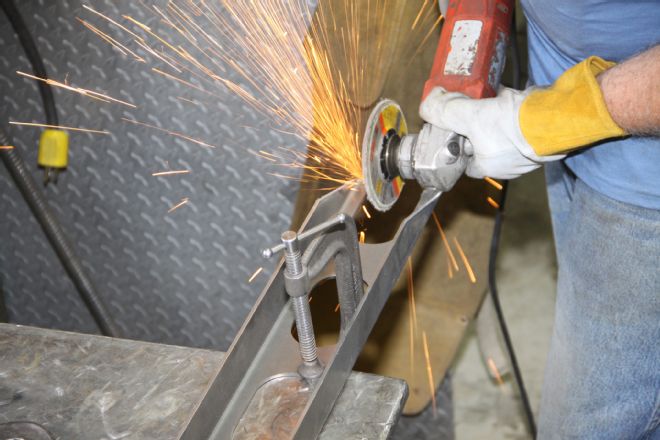
A sanding disc takes care of any rough edges that remain after trimming.
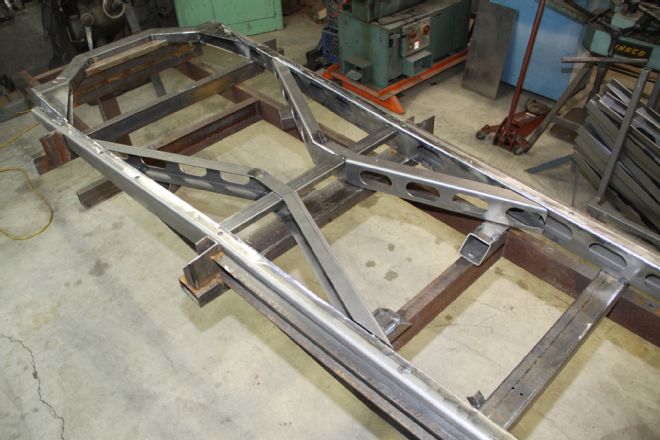
After removing the excess material the assembly is dropped in place for a test-fit. All that remained was matching the holes in the front of the Super X to those in the boxing plates (also available from Dagel's).
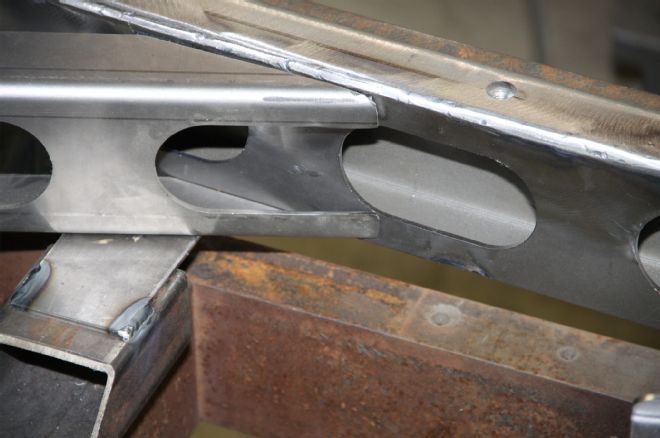
The trimmed X-member ends fit tightly to the frame and note how the holes align.
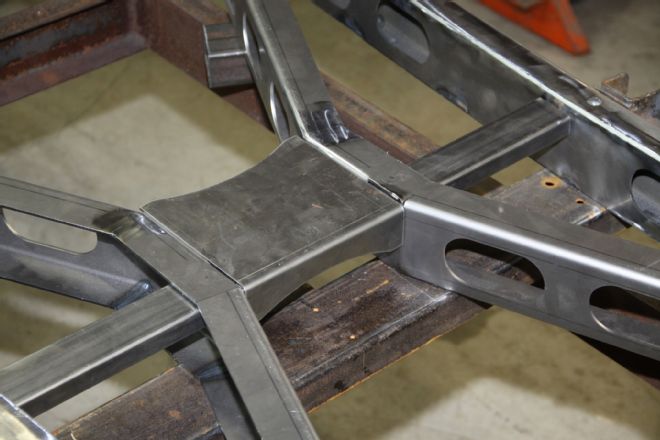
Along with positioning all the components correctly, the top plate ties together the X-member and the cross tube and adds considerable strength.
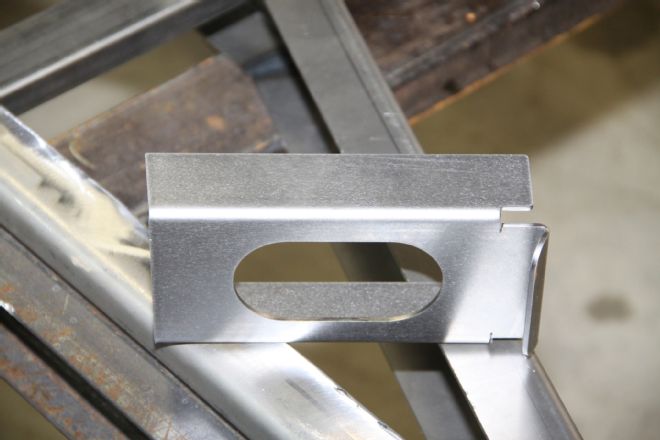
A pair of preformed channels fit between the center of the X-member and the framerails.
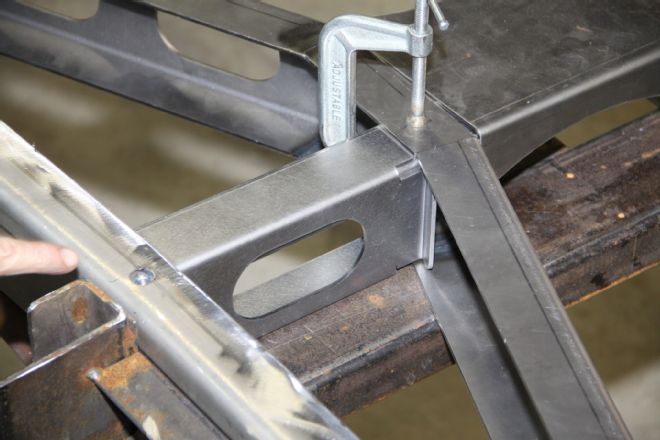
Positioning the sidepieces is easy; they simply fit over the crosstube and butt against the framerails.
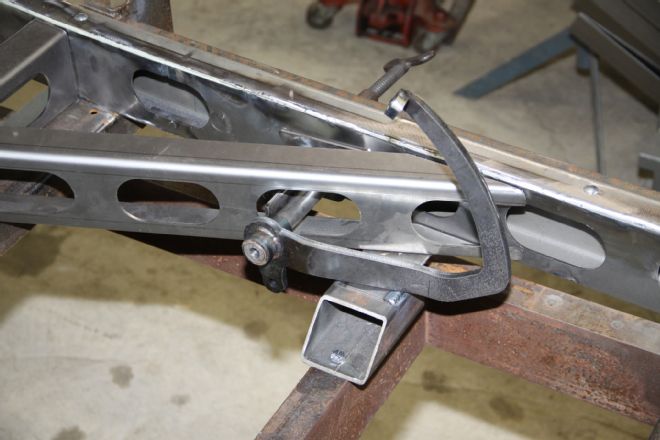
An option with the Super X kit is a brake pedal and master cylinder mount.
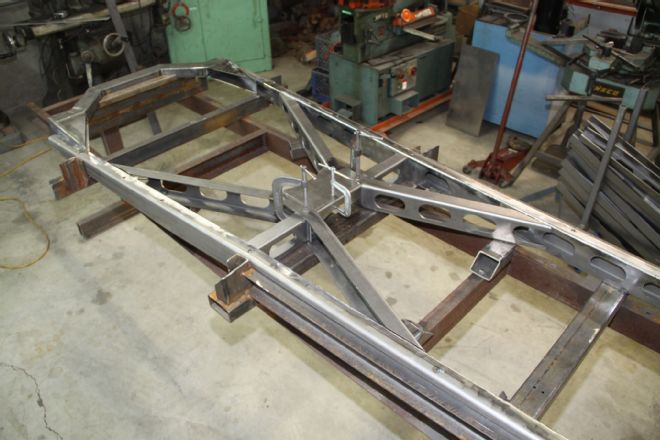
Trimmed to fit all that's left to do is fire up the welder.